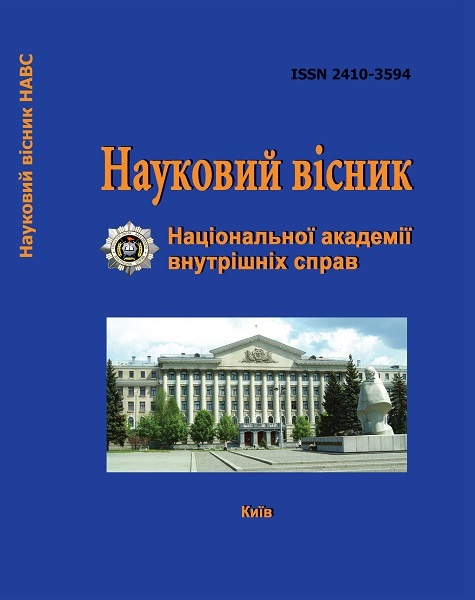The Subject Structure of the Constitutional Court Ukraine According to the New Legislated
Abstract
The main and important feature of constitutional justice in any country is that it is directly related to the activity of the legislative and executive bodies of state power. Only such a court can do control over the activities of public authorities within the framework of the current constitution. The subject of his competence is the establishment of constitutionality of legal acts of these bodies. In this case, the judge in his activity should be guided by the principle of apolitical, observance of which prevents the formation of distrust of society to this. However, due to the heterogeneous political events of recent years and the beginning of constitutional reform in Ukraine, there has been a shift in the sphere of functioning of the Constitutional Court of Ukraine, also in determining the subject structure. Consequently, the article presents a classification of the subject structure of the Constitutional Court of Ukraine, as well as an analysis of each of them. In addition, the author found that under the new Law of Ukraine «About the Constitutional Court of Ukraine» its subjective part was significantly expanded both in the number of direct participants in the process and in the number of indirect participants. Thus, the judges of the Constitutional Court of Ukraine carry out their activities in the Grand Chamber, Senate, colleges and permanent committees, which significantly accelerates the consideration of the case. It is also positive that, apart from some public authorities (the Supreme Rada, the Cabinet of Ministers, the Ombudsman, etc.), any natural or legal person of private law now has the right to appeal to the Constitutional Court of Ukraine with a constitutional complaint. In this case, an actual became the questions of the procedure for realization of the right to it (the constitutional complaint), the guarantee system and the mechanism for its realization remain, as well as the role of the legal institution of advocacy in resolving the issue of challenging unlawful (unfair) decisions in an international court.
Downloads
Abstract views: 100 PDF Downloads: 230
- Authors reserve the right to authorship of their own work and transfer to the magazine the right of the first publication of this work under the terms of the Creative Commons Attribution License, which allows other persons to freely distribute published work with mandatory reference to authors of the original work and the first publication of an article in this magazine.
- Authors have the right to enter into separate additional agreements on non-exclusive dissemination of the work in the form in which it was published in the journal (for example, to post an article in the institution's repository or to publish as part of a monograph), provided that the link to the first publication of the work in this journal is maintained.
- The journal's policy allows and encourages the posting of articles by authors on the Internet (for example, in electronic storehouses of institutions or on personal websites), both before the submission of this manuscript to the editorial office and during its editorial processing, as this contributes to the creation of a productive scientific discussion and positively affects the efficiency and dynamics of citing the published work.




